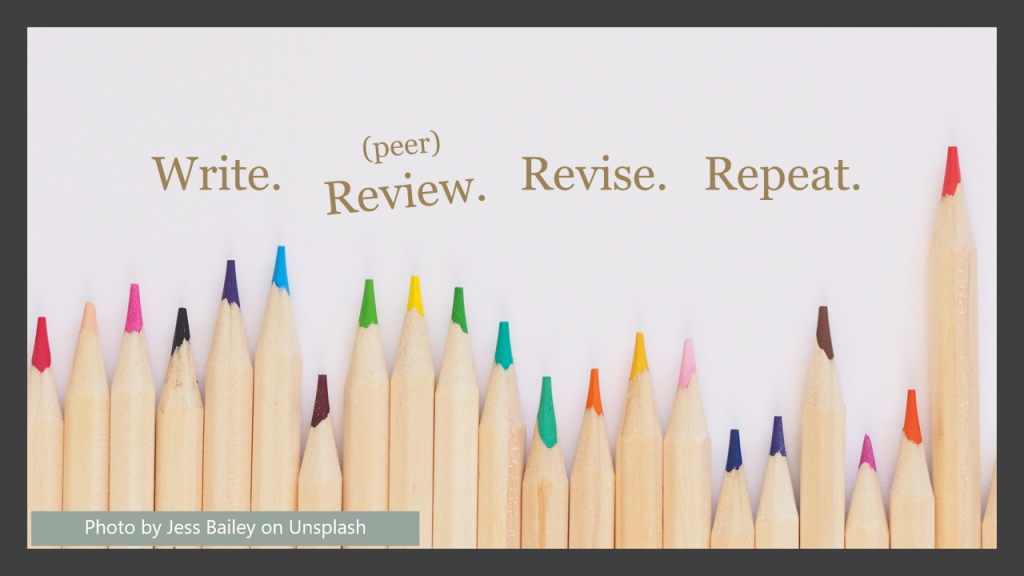
As part of the eCampus Extend Module, Teacher for Learning, I was tasked with reading an article from the Faculty Patchbook and writing a response to one idea expressed in it. I chose Patch #39 – The Colleague Sway, by Joseph A. Mayo.
“Once revised papers are submitted to the instructor for final grading purposes, most technical errors will be eliminated and the content is typically stronger. With mechanical and grammatical mistakes minimized, instructors can now concentrate more freely on the task of judging each paper’s content in the general absence of distracting technical errors.” ~ Mayo
**Professors of Writing: wouldn’t it be great if peer review eliminated all the mechanical errors in a piece of writing and all you needed to do is grade for ideas/content/arrangement?
This quotation is a lovely thought but idealistic because it makes two assumptions: (1) that all the mechanical errors are simple (maybe even, typos) and (2) that all students have a strong understanding of writing in English. The notion of the peer review, or the colleague swap as Mayo calls it, is complicated when the students are new English language learners (NELL).
I have been struggling with how to help college-level students, who are intelligent and eager to learn new things in their chosen disciplines but are lacking in their ability to communicate effectively in English. I am struggling with this for two reasons:
- I am not equipped to teach the rules of grammar, nor am I (at all) interested in this;
- I thought teaching communications would be an exercise in inspiring students to think critically, where we read really interesting, thought-provoking pieces and discuss them.
Instead, I am stuck trying to decipher ideas and police for plagiarism/copying from other students or the internet.
When the basic mechanics of writing/communicating compound a student’s efforts in completing an assignment, the whole writing process is compromised. And peer review becomes an exercise of risk management. Don’t get me wrong: I truly believe in the benefits of peer review. But, when the students do not have a good base of knowledge to start from, it complicates things.
One way I plan to address this is to create peer feedback forms that include specific, pointed questions which will require the student to have read the piece of writing, understood it, and thought about what makes the piece of writing work, along with the potential problems in the writing. By the way, I think this is good teaching practice, whether students are new English language learners or not; helping students to achieve the deep level of thought to offer another writer feedback is crucial in the whole process.
This post was written as part of the eCampus Extend Module: Teacher for Learning.
